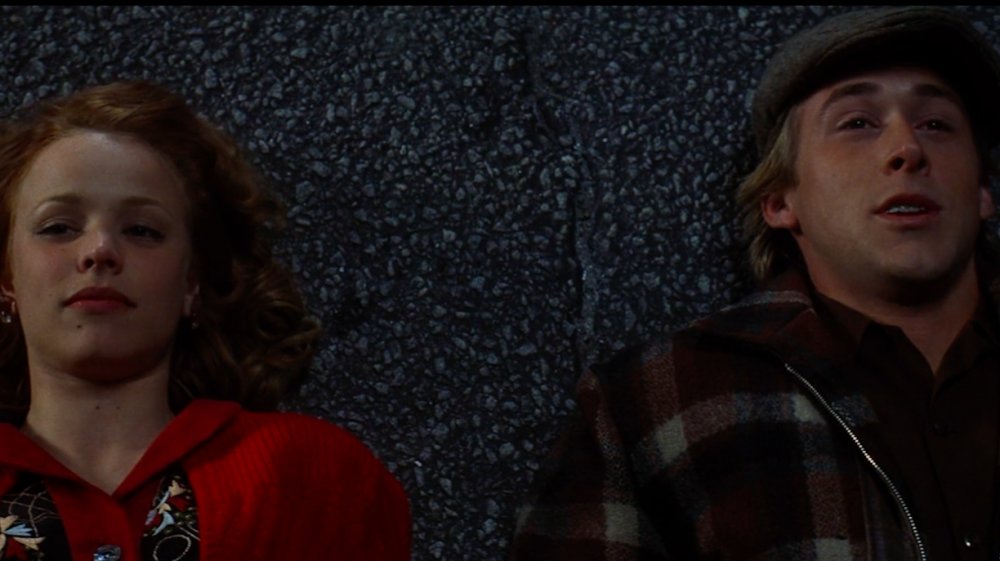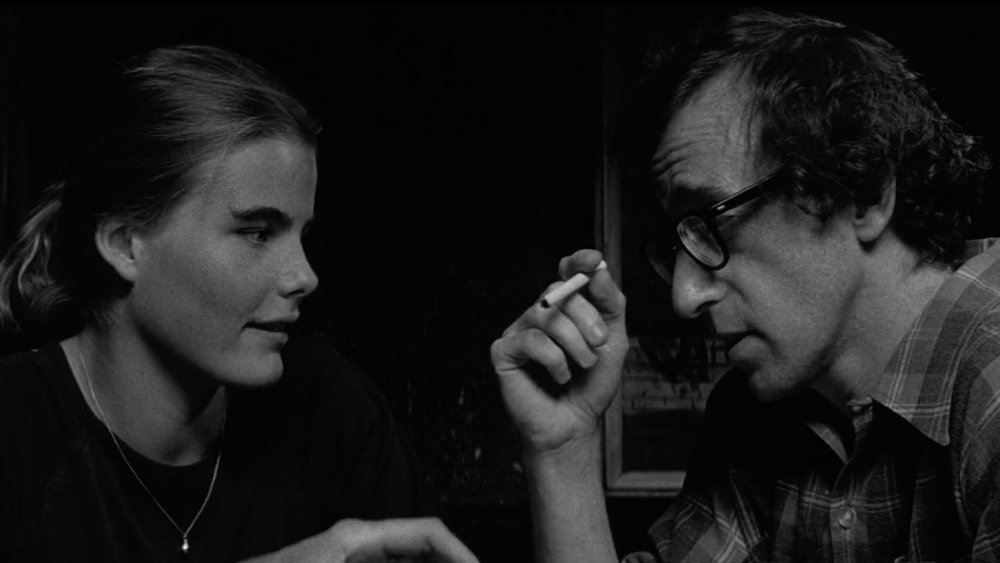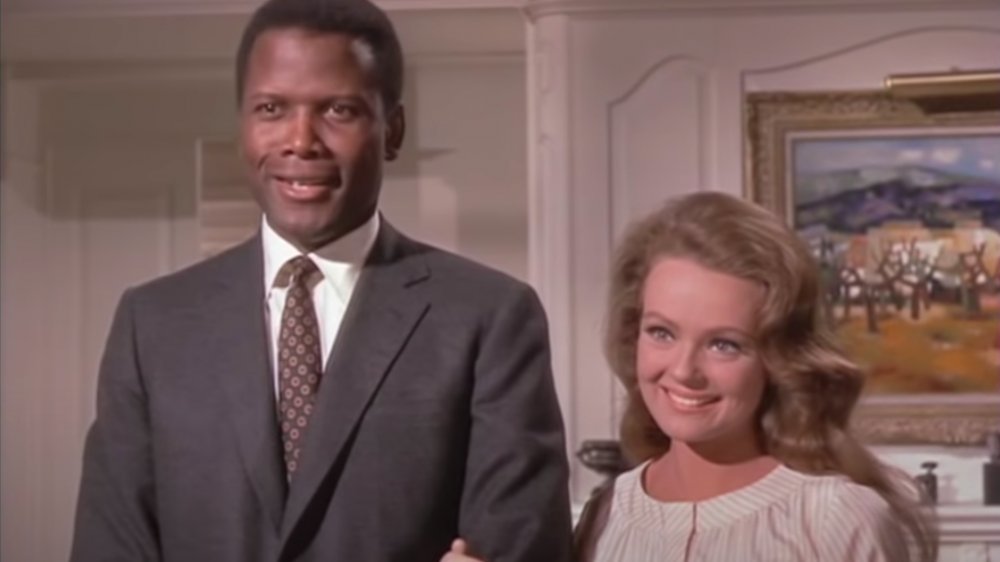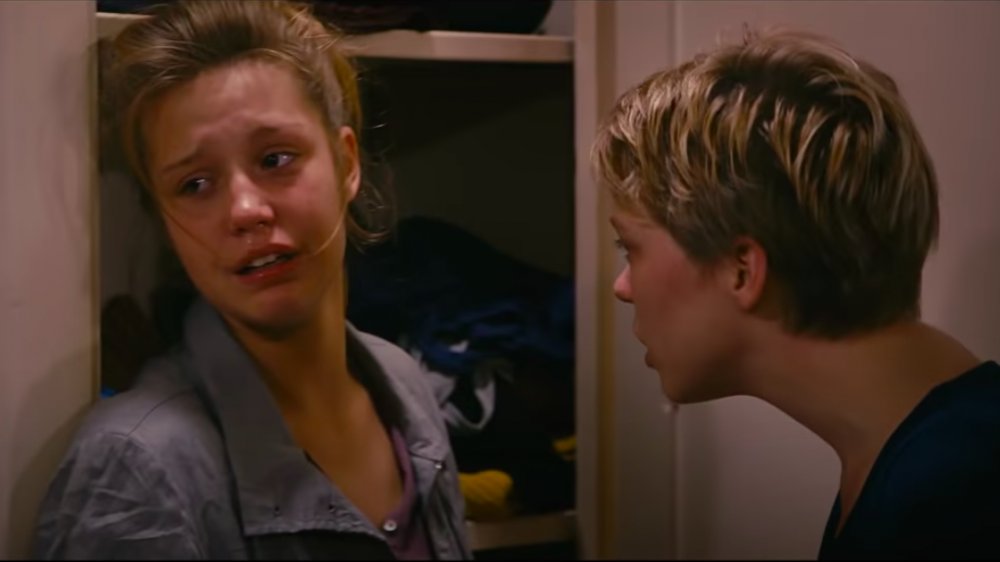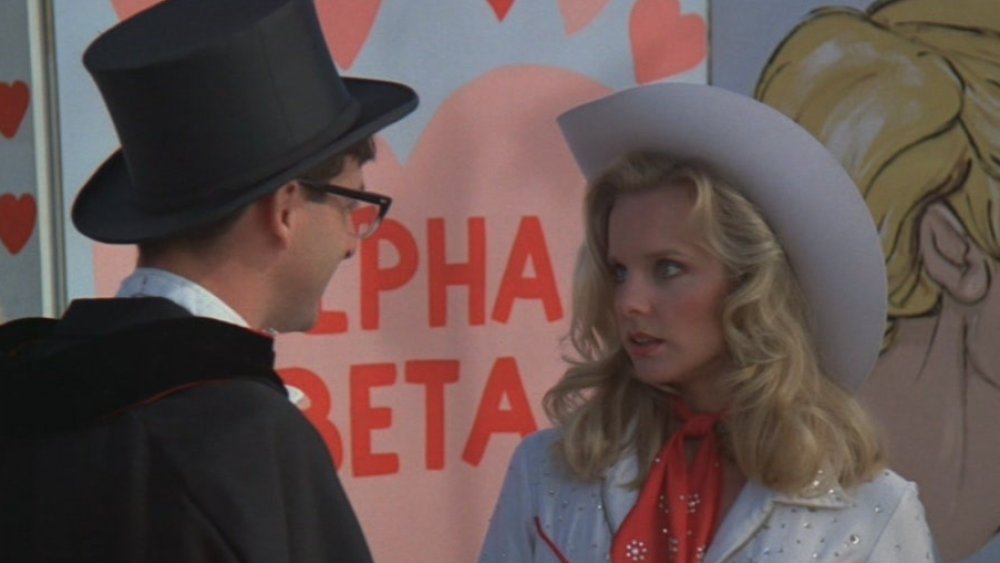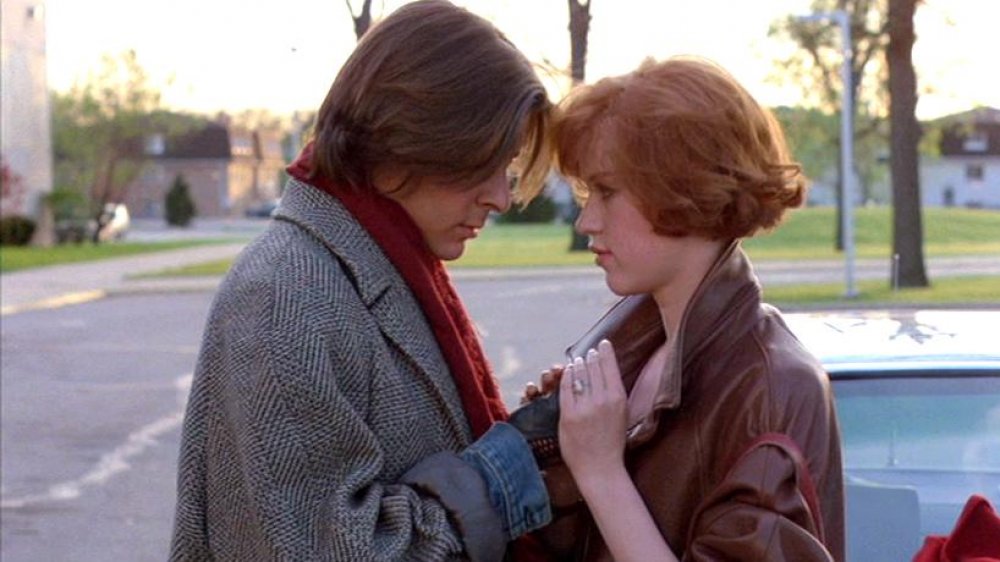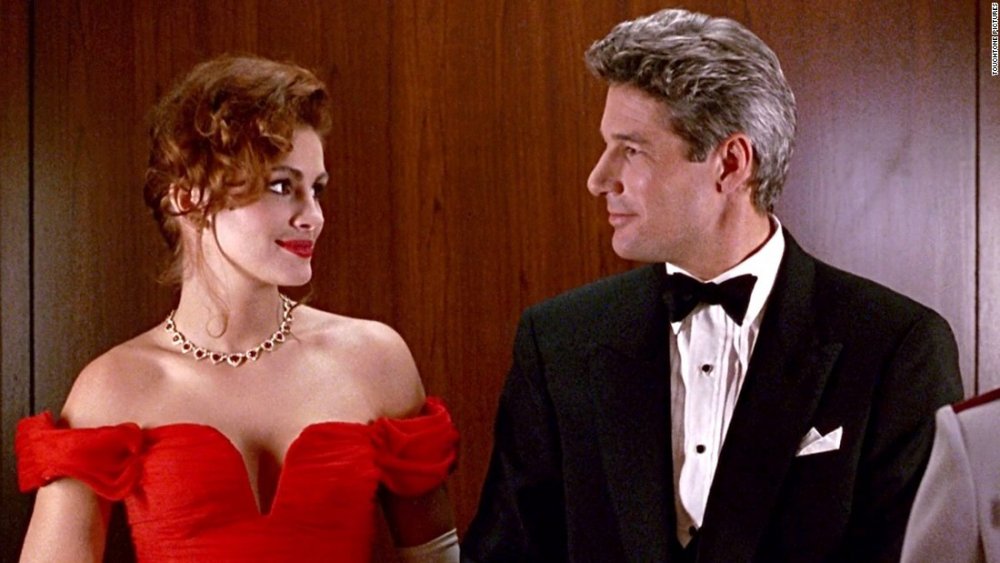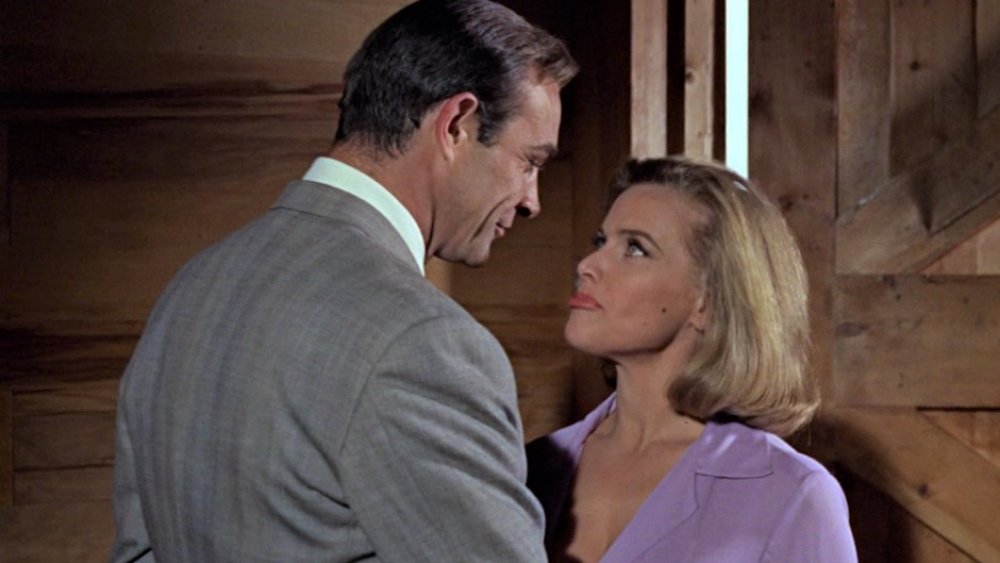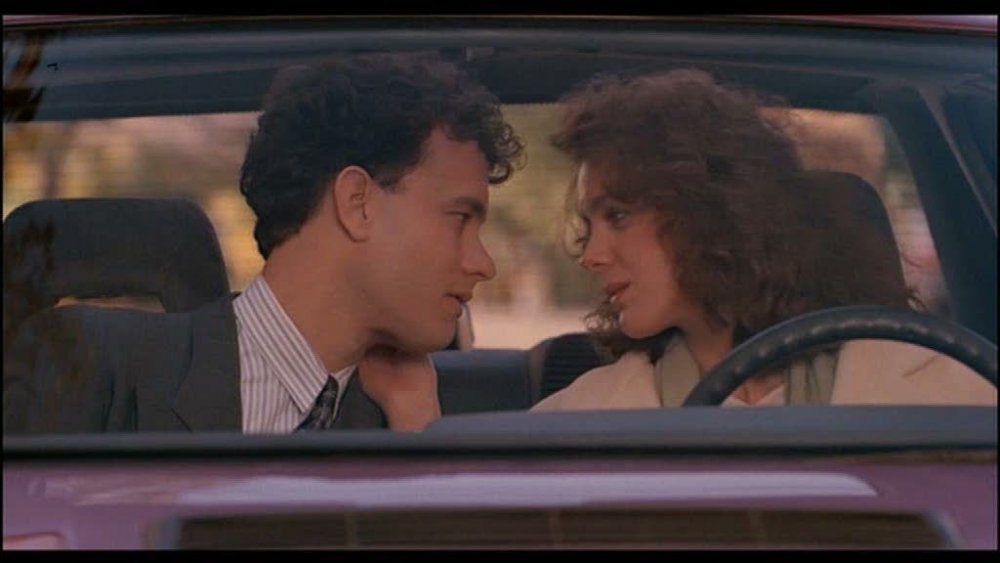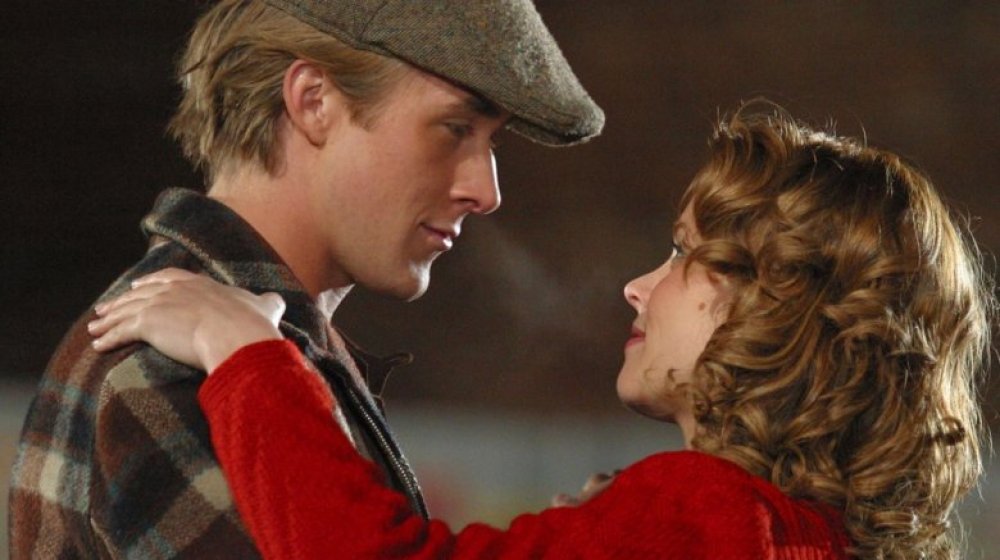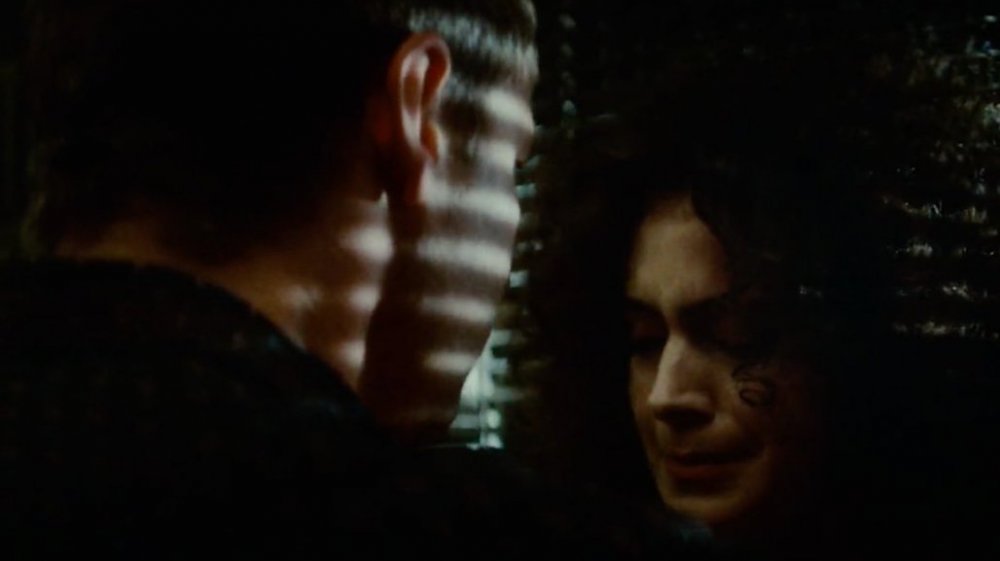On-Screen Romances That Would Never Work Today
Time changes movies and the way we perceive them. As we grow and evolve as a society, new movies tell our stories, and we reshape our views of the old ones. Bridget Jones's Diary hits much harder in the wake of the Me Too movement. The Black Lives Matter movement has forced us to put our sights on numerous films, some brought into focus for better viewing and others into the crosshairs of destruction.
It's hard to imagine a world where we only ever make timeless films. We might not even get close. Even now, the white male-dominated industry continues to neglect female roles and voices. If we can't get women right, there can never be truth in film. So, where does that leave romance movies? It seems we can't even go a year without seeing a romance on film that ages like already-curdled milk. After all, we recently had a blockbuster flick romanticizing abuse in 2016's Passengers.
But looking further back can give us a glimpse at how much times have changed. Even films that were once seen as progressive now highlight how behind the times we really were. To help with this exercise, we decided to look at on-screen romances that would never work today.
From nebbish to monster
When Manhattan came out in 1979, the world seemed more able to accept a relationship between a 42-year-old writer, played by Woody Allen, and a 17-year-old high school student, played by Mariel Hemingway. According to The New York Times, "No characters in the movie seem very troubled by the ethics of the affair, nor did many critics at the time." Even in more recent times, the film has been considered one of the greatest comedies of all time, as per the BBC.
For many critics, however, new information has changed the perceptions of the players involved and, consequently, how we feel about the movie. Allen had the sexual assault scandal. If that's not all, Hemingway revealed that Allen tried to seduce her after the film was released, attempting to fly the 18-year old out on a European vacation with him, as per Vanity Fair. "Manhattan was always about a middle-aged man with a high school girlfriend," critic Lisa Schwarzbaum said to The New York Times. "Back then, Manhattan was made by Woody the Lovable Neurotic Nebbish, and now it has been made by Allen the Monster. And it's the same movie."
Changing the dinner menu
In 1967, the year the Supreme Court lifted bans on mixed-race marriages in numerous states, Guess Who's Coming for Dinner challenged white Southern audiences and liberal elites. Though according to the Los Angeles Times, "some critics found it bland and patronizing," the mixed-race couple, played by Sidney Poitier and Katharine Houghton, was still progressive for major films at the time. These days, however, their romance appears out of touch.
The film notably staged the first major motion picture kiss between a white actress and a Black actor, but their relationship was unrealistic for many. For one, Houghton's character, who is described as a politicized woman of the future, doesn't actually say much of anything, a bleak reality for many of her female contemporaries. The one scene that would have seen her shine, was cut. "It's the only chance that I have of making my character intelligent enough for a character like Sidney Poitier to fall in love with," Houghton said on Larry King Live. "Otherwise he's just falling in love with a Pollyanna idiot. You have to make the audience believe that he would be attracted to me."
As The Guardian notes, how other characters react politely and calmly to this relationship also comes across unrealistic. In 2017, Get Out turned that placid make-believe land on its head and made the supposedly supportive parents into seething villains hiding their true plans and colors.
Misunderstanding women
We are less than a decade removed from the release of Blue is the Warmest Colour, but the way sex scenes and women are filmed has been steadily improving since then. In fact, the controversy surrounding the French film may have helped bring more attention to the need for better protective measures on set. Most of the issues encompass the director, Abellatif Kechiche, and his methods. While Blue is the Warmest Colour won the Palme d'Or at Cannes Film Festival, the movie's biggest headlines came from the comments from the film's on-screen couple, Léa Seydoux and Adèle Exarchopoulos.
"He shoots for such a long time," Seydoux told the Independent. "Of course it was kind of humiliating sometimes, I was feeling like a prostitute. Of course, he uses that sometimes. He was using three cameras, and when you have to fake your orgasm for six hours... I can't say that it was nothing." The result was what some critics have called a voyeuristic male fantasy of a lesbian couple. "The movie feels far more about Mr. Kechiche's desires than anything else," Manohla Dargis wrote in The New York Times. "Mr. Kechiche registers as oblivious to real women. He's as bad as the male character who prattles on about 'mystical' female orgasms and art without evident awareness of the barriers female artists faced or why those barriers might help explain the kind of art, including centuries of writhing female nudes, that was produced."
The nerd becomes the villain
Films from the 1980s had some weird ideas about what was socially acceptable. Many cinematic heroes did some absolutely terrifying things to other people, particularly to women. In many cases, they were even celebrated for it. Few films take this as far as Revenge of the Nerds. In the most offensive moment, Lewis, one of the film's stars played by Robert Carradine, tricks an unsuspecting female into sleeping with him — all to get back at her boyfriend.
To make matters worse, Betty, played by Julia Montgomery, welcomes this deception to maintain Lewis' position as the protagonist. "Rather than being horrified to discover that she's basically been raped by a stranger, Betty swoons for her nerd conqueror," A.A. Dowd writes for The A.V. Club. "She also instantly forgives the fact that Lewis has been disseminating naked photos of her across campus. It's enough to make your skin crawl."
Speaking with GQ in 2019, Montgomery shared her thoughts on the scene. "In the '80s, we didn't see it as a rape scene, exactly," she said. "He just wanted to date me. There's something charming about that. You can write this: I blame Jeff [Buhai, screenwriter]. There should've been one more beat in this scene — something else, something added, even if Betty had pushed him or slapped him or something."
The Breakfast Club hid 'sexual harassment in plain sight'
For all the controversial scenes in John Hughes' classic films, 16 Candles catches the brunt of the criticism, with the notorious date-rape scene standing out prominently. It makes sense that people have zeroed in on it, but 16 Candles may actually shelter some of Hughes' other work. Even Molly Ringwald, Hughes' former muse (who herself came out as having been sexually harassed at 13) asked the question, "What About The Breakfast Club?" in The New Yorker.
"Bender sexually harasses Claire throughout the film," she writes. "When he's not sexualizing her, he takes out his rage on her with vicious contempt, calling her 'pathetic,' mocking her as 'Queenie.' It's rejection that inspires his vitriol. Claire acts dismissively toward him, and, in a pivotal scene near the end, she predicts that at school on Monday morning, even though the group has bonded, things will return, socially, to the status quo. 'Just bury your head in the sand and wait for your f**kin' prom!' Bender yells. He never apologizes for any of it, but, nevertheless, he gets the girl in the end."
As professor Sujata Moorti highlighted in the Chicago Tribune, a comedic lens can go a long way in hiding sexual harassment in plain sight in film. "The humor is derived from the ineptitude of these teenage boys," Moorti said, "and sexual assault gets folded into that and it becomes an accessory to the humor. So it has a trivializing effect. A sanitizing effect."
Pretty Woman gets a makeover
People have always been a little divided on Pretty Woman. As Refinery29 discussed, the film was always controversial. Though it earned the World's Most Beautiful Woman, a.k.a. Julia Roberts, an Oscar nomination and "now holds rom-com emeritus status," it was criticized by critics like Janet Maslin of The New York Times for its "covetousness and underlying misogyny."
In 2013, Daryl Hannah shared with the Hindustan Times her reasons for turning the role down. "The entire idea about glorifying a woman for becoming a prostitute and then meeting your prince charming to go on to live happily forever sounded wrong to me," she said. "You cannot glorify prostitution like that – it is not a preferred career choice." Later, Refinery29 argued that it's the film's unabashed treatment of sex work that makes it so revolutionary.
In truth, Pretty Woman is a retelling of George Bernard Shaw's Pygmalion among countless others. Richard Gere's character, Edward, is the high-class gentleman who gives Roberts' character the makeover of a lifetime. He teaches her manners, teachers her how to drink champagne, orders dinner for her, and even lets her have ice cream. It's probably this type of characterization that led Roberts to tell The Guardian in 2019 that she didn't think Hollywood would be too keen on making that film nowadays. "A lot has changed in the industry," she said. "I don't really think you could make that movie now, right? ... So many things you could poke a hole in."
An old-timey gentleman
There was a time when James Bond was considered the ultimate gentleman. In fact, William Boyd, a Bond novelist, suggested that the movie character was too cartoonish and not flawed enough. Well, looking back on the character's treatment of women, it's safe to say he has plenty of flaws. Throughout over 20 Bond films, 007 pulled out a variety of assault tactics from his bag of tricks to woo the women in his life.
Bond has been abusive to the women he likes and hates. He's also crossed the line a number of times sexually, a reality that even Family Guy poked fun at. The worst of all scenes must come from Goldfinger, when Bond uses violence to disarm and seduce Pussy Galore. Set to a different score, it's not hard to view this scene more sinisterly. It's situations like these that had Scott Gilmore from Maclean's declaring that "James Bond was a rapist."
"Within ten minutes, things became uncomfortable as we watched Bond break into a hotel room and overpower a woman in order to have sex with her," he wrote. "Then, of course, Pussy Galore arrives. Bond uses a series of judo moves to overpower her ... As he tries to kiss her, she twists her face away and struggles desperately to fight him off. But, inevitably, she is beaten. Bond gets what he wants."
A big problem
Tom Hanks is one of those actors that people pretty much automatically love and respect. That's probably why it's so hard to accept that his beloved film Big is an ethical and moral nightmare. In case you forgot, the film revolves around a boy, played by David Moscow, who magically turns into an adult, played by Tom Hanks, and falls in love with an adult woman, played by Elizabeth Perkins. It's this plot that has Mandatory calling it "the creepiest story ever told."
It's unlikely that the studio execs would be clamoring over themselves to fight for a movie like that these days, one that might possibly, ever so slightly, imply that some statutory rape is happening. Even the star, Moscow, doesn't think Big could be made today. "I think people would jump on it," Moscow told Yahoo Entertainment. "If they did make it, the press, before it even came out, would be ripping it to shreds. The religious fanatics would be out there talking about it. People would demonstrating. I don't think you could."
Persistent pursuit
The Notebook is one of those movies that, if you loved it, it's best just to let it go and hope it never comes back. Let's be honest, there is loveable content here. Both Ryan Gosling and Rachel McAdams put forth incredible performances and became huge stars. They even dated for a few years, too. But the on-screen love story couldn't work as well today because of the, well, because of the creepiness.
As critics, like Carly Mallenbaum of USA Today, have noted, the contemporary lens isn't kind to The Notebook. Gosling's character, Noah, is not the loyal and lovestruck young man we remember. He's actually more of an obsessed stalker who preys on Allie for near a lifetime. Their relationship is also pretty violent and abusive. Salon Magazine includes The Notebook in its piece on the "toxic myth of the romantic stalker." Discussing the "persistent pursuit" commonly depicted in cinema, the piece states, "When the media tells us it's OK for a man to risk his life—and those of everyone around him—by climbing an amusement park ride to chase a girl who doesn't want you, audiences are more likely to accept these actions as appropriate, too. After all, we've been told this behavior is acceptable all our lives."
Do androids mean no?
Many film lovers put Blade Runner among the great films. The American Film Institute, for one, placed the movie in its "100 Years...100 Movies–10th Anniversary Edition list." As a movie, there can be no doubting its excellence, but the love story between Rick Deckard (Harrison Ford) and Rachel (Sean Young) is highly questionable. As The Fandomentals states, the film's ugliest moment appears to excuse rape.
"We see a degree of non-consent that is above the average (even for the eighties with their James Bonds), with the usual fade to black that spares us the necessity to watch the rape until its conclusion. But what we do see really has everything. Rachael, Deckard's victim, refuses him and tries to run away. He blocks her exit, slams her to the wall, and then forces her to ask for his sexual attention before he proceeds with the rape."
While contemporary audiences wouldn't easily confuse this as less than rape, the modern sequel, Blade Runner 2049, tries to hide and twist this ugly truth to continue the love story charade. "The new movie relies on a sentimental hook that simply doesn't exist in the original film, and because of that, the sequel's story loses some emotional credibility," Casey Cipriani writes for Slate. "By expecting us to accept a love story that's essentially based on sexual assault, Blade Runner 2049 is asking its audience to buy into one of the most damaging ideas behind rape culture."

